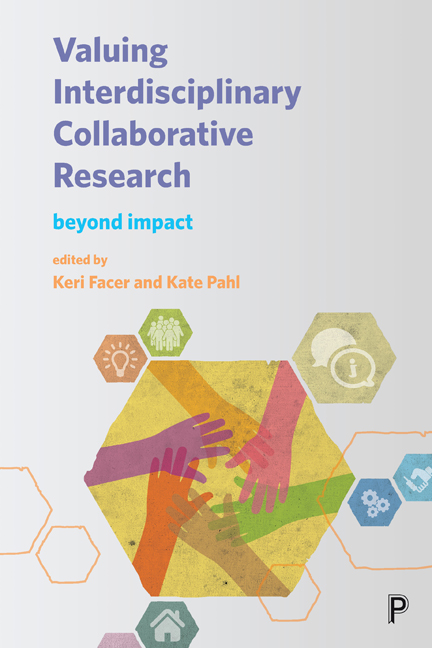Introduction
Published online by Cambridge University Press: 05 April 2022
Summary
What is at stake when we value collaborative research?
The boundaries between universities and publics are becoming more fluid and new research collaborations are proliferating. Indeed, there is an increasing emphasis, in particular in the UK, on the development of partnerships in the design and conduct of research. This ‘participatory turn’ is fuelled variously by: communities seeking evidence and validation for their practice in pursuit of organisational learning and/or further funding; the increasingly fluid careers and identities of practitioners and researchers moving in and out of the university and building new collaborations between civil society and academia as they go; the long legacy of critical theory and poststructuralist thinking, which has fuelled a generation of academics alert to the limits of their own perspectives and seeking to pluralise their accounts of reality; government and policy bodies seeking evidence of ‘relevant’ public research; and a generation of civil society activists and communities increasingly well placed to challenge the dominant accounts of society with which they are presented (Facer and Enright, 2016).
For these reasons participatory and collaborative research is flourishing across all fields – from medicine to the arts, from urban studies to education. What has not kept pace, however, are the theories and methods needed to understand and make good judgements about the value and quality of this research. Rather, much of the effort has been focused on making these sorts of ‘engagements’ happen and struggling with the complexity of these processes and practices as they are happening. Much less attention has been paid to understanding the legacy of these moments of collaboration between academics and communities or to how and whether these processes deliver on the significant claims about quality, democracy and equity that such projects are often bound up with.
As project teams and as funders of research seeking to make sense of this new landscape, therefore, we need to ask ourselves: What should we be looking for if we want to understand the contribution that this sort of research is making to the knowledge base? How can we examine the contribution of this research to the wider public good? What theoretical resources can help us in evaluating and valuing this sort of research? And what methods, tools and approaches are available to assist with making sense of the complex and messy dynamics of these collaborative research practices?
- Type
- Chapter
- Information
- Valuing Interdisciplinary Collaborative ResearchBeyond Impact, pp. 1 - 22Publisher: Bristol University PressPrint publication year: 2017



